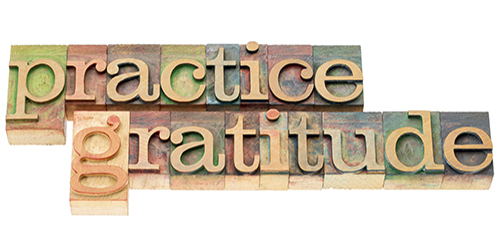 There is always something to be grateful for. Whether this time of year has you pondering gratitude or pumpkin pie, there is only one that is beneficial to your overall health and organization year-round. Sorry, it is not the pie.
There is always something to be grateful for. Whether this time of year has you pondering gratitude or pumpkin pie, there is only one that is beneficial to your overall health and organization year-round. Sorry, it is not the pie.
Studies have shown that those who are grateful are healthier, well rested, and experience fewer physical aches and pains. It has also been proven that a positive attitude increases happiness and empathy, while decreasing depression and aggressive behaviors.
Practicing gratitude in the workplace brings about many positive effects. It can boost productivity, improve employee collaboration, increase motivation to perform, and give employees a sense of value and belonging.
Research has found that expressing and feeling gratitude will boost employee health and wellbeing by:
- Promoting better sleep
- Lowering blood pressure
- Improving mindfulness
- Increasing energy
- Improving mood and feelings of happiness
Inspire gratitude at work by:
- Celebrating success
- Encouraging peer-to-peer recognition
- Practicing mindfulness
- Encouraging random acts of kindness
- Educating about how to be grateful and the benefits of it
A simple act of kindness can go a long way to creating a positive attitude. Start your meetings with something positive. A simple “Thank you! I really appreciated your help” or “You did a great job on our project; thanks!” will go a long way. In this simplest form, an expression of gratitude costs nothing and only requires minimal time and attention.
Gratitude should be a skill you want all your employees to possess. Cultivating a culture of gratitude is also a way to help a workplace prepare for stresses that come with change, conflict, and failure. Making gratitude a policy and a practice creates a of psychological immune system. There is scientific evidence that grateful people are more resilient to stress, whether minor everyday hassles or major upheavals.
Use these questions to learn from your experiences:
- What lessons did the experience teach us?
- Can we find ways to be thankful for what happened to us now, even though we were not at the time it happened?
- What ability did the experience draw out of us that surprised us?
- Are there ways we have become a better workplace because of it?
- Has the experience removed an obstacle that previously prevented us from feeling grateful?
While reflecting on what to be grateful for this Thanksgiving, take time to reflect on what is going well at work.